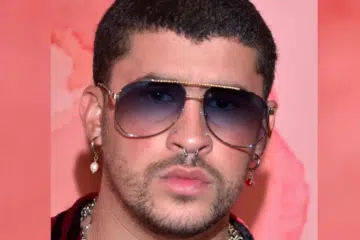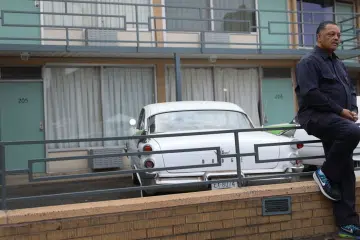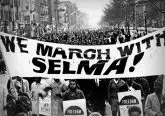Bishop Strickland denies wrongdoing, says Vatican inquiry ‘not fun’
Denver, Colo., Jul 25, 2023 / 12:00 pm
In a recent podcast, Bishop Joseph E. Strickland of Tyler, Texas, denied any wrongdoing related to the Vatican inquiry into his conduct and that of his diocese and said the recent apostolic visitation was “not fun.”
The Vatican’s delegates were “looking at everything,” Strickland told a prerecorded show of the “Bishop Strickland Hour,” scheduled to be broadcast by Virgin Most Powerful Internet Radio on July 25.
“There have been some administrative issues, and I’m sure people are concerned,” the bishop said. “I’m sure there are people saying that there must be something really bad, and something’s really gone wrong for this apostolic visitation [to happen].”
“I’ve got nothing to hide,” he said in a show excerpt posted to YouTube.
Strickland said the apostolic visitation was “not fun” and compared it to “being called to the principal’s office.”
An apostolic visitation is a specific form of canonical visitation in which any ecclesial superior visits or sends a delegate to persons or institutions under their authority to maintain sound doctrine and morals or correct abuses. The pope can initiate apostolic visitations throughout the universal Church in his capacity as the supreme pontiff.
The apostolic visitation of Strickland and his diocese was supervised by the Vatican’s Dicastery for Bishops. This rare form of intervention points to possible disciplinary action against Strickland.
As CNA reported June 25, a source in the diocese told EWTN News on background that the apostolic visitation consisted of interviews with diocesan clergy and laity throughout the preceding week before concluding with a meeting with Strickland. Bishop Emeritus Gerald Kicanas of Tucson and Bishop Dennis Sullivan of Camden, New Jersey, led the inquiry.
The process addressed the bishop’s social media use but also questions related to diocesan management, according to the source.
Strickland, 64, is a popular but polarizing figure. Many U.S. conservatives appreciate his outspokenness and staunch defense of the unborn, marriage, the traditional Latin liturgy, and Catholic orthodoxy. He shares his views and commentary with 136,000 followers on the social media site Twitter.
Strickland has headed the Diocese of Tyler since 2012. The bishop has faced criticism for what some see as intemperate social media posts unbecoming of a prominent U.S. prelate, including a May 12 tweet that suggested Pope Francis was “undermining the deposit of faith.”
Discussing the Vatican inquiry on his radio show, Strickland repeated that the process was difficult.
“It’s not something that I would volunteer for, to go through an apostolic visitation,” he said. “It kind of puts a shadow over the diocese.”
The bishop said he thinks he was subject to the visitation “because I’ve been bold enough and loved the Lord enough and his Church, simply preaching the truth.”
Without being specific, he said: “The sad thing is that too many people are bringing a false message that is harmful to the world and to the mystical body of Christ that is the Church.”
“But the false message will never prevail,” he continued. “It will never destroy the faith of the people who know their faith and are strong in faith. Sadly, there are too many that aren’t well-catechized, and they’re easily deluded by false gospels that are out there.”
Commenting on people on Twitter who say “Bishop Strickland’s on the way out,” the bishop said: “Maybe they’re right.”
“But the reality is that I’m happy serving as a shepherd of the Diocese of Tyler. I consider it an honor that I don’t deserve,” he continued. “It’s a lot of work. It’s a lot of challenges. I have made mistakes, but the goodness of the people and the grace of God have allowed us to do some really good things.”
Strickland’s tenure has also coincided with positive signs of spiritual and administrative health in Tyler.
Currently, 21 men are in priestly formation for the territory of only 55,000 Catholics, a rate of seminarians-per-Catholic considerably higher than most other U.S. dioceses. The diocese is also reportedly in good financial shape, shown in part by its ability to raise 99% of its $2.3 million goal for the 2021 bishop’s appeal six months ahead of schedule.
“The finances are in order, we have a great finance team, development is strong, we have a good number of seminarians,” Strickland told his radio show. “And I go to the different parishes, celebrating confirmation, the people are very welcoming. They say they’re praying for me.”
“It’s humbling to see the concern of the people, the faith of the people… It’s humbling but also uplifting to see the goodness of the people,” he said.
Strickland emphasized his love of God and his efforts to evangelize but also suggested he didn’t need to be corrected.
“The joy of continuing to share the Gospel of Jesus Christ is a joy I know that won’t stop you and won’t stop me if we do it with love, with charity and clarity, with humility, always ready to be corrected,” he said.
“But when we’re speaking the truth of Jesus Christ, there is no correction,” Strickland continued. “And the world can try to shout us down, but it won’t work.
Several U.S. bishops have faced apostolic visitations in recent years.
The Vatican in November 2022 reportedly sent an apostolic visitation to the Diocese of Knoxville, Tennessee, where Bishop Richard Stika has recently been embroiled in allegations of sex abuse cover-up. The Vatican has reportedly asked Stika to resign, but he remains in office.
Bishop Daniel Fernandez Torres of the Diocese of Arecibo in Puerto Rico was reportedly the subject of an apostolic visitation before his removal from office on March 9, 2022. The Vatican never provided any official reason for his removal, but his metropolitan, Roberto Archbishop Octavio González Nieves of San Juan, said it was due to “insubordination towards the pope.”
This was likely related to Fernandez Torres’ break from the practice of his fellow Puerto Rican bishops by not sending his diocese’s seminarians to a newly established national seminary. He also refused to sign a joint statement on the duty to receive a COVID-19 vaccination.
New York’s Diocese of Buffalo was the subject of an apostolic visitation in October 2019 after its then-leader, Bishop Richard Malone, faced significant criticism for his handling of clerical sexual abuse in the diocese. Pope Francis granted his request for “early retirement” in December 2019.
Bishop Martin D. Holley was removed from the Diocese of Memphis, Tennessee, on Oct. 24, 2018, following a three-day apostolic visitation in June 2018 that reportedly looked into allegations of mismanagement of diocesan personnel and finance.













